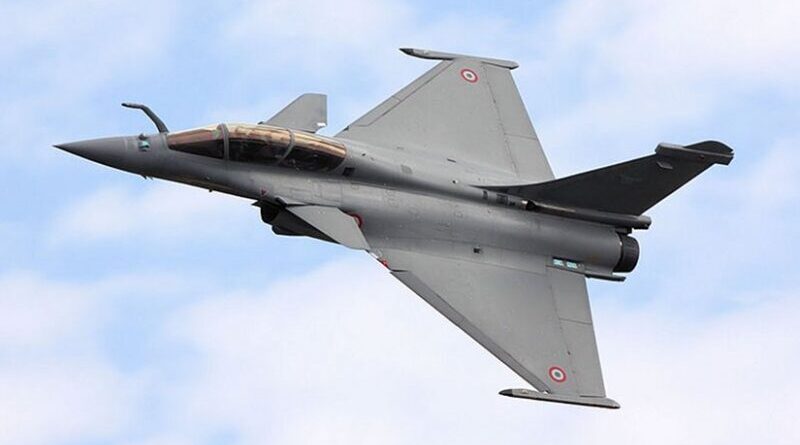India Continues Talks With France For Rafale Warplanes – OpEd
India is yet to know or decide as to how much weapons it require for defence purposes and for terror operations in occupied Jammu Kashmir. That said, the way it keeps adding high precision arms to its budged arsenals only shows it has big plans for the region and beyond, although it seems to love arms as a habit much more than its neighbors do.
Obviously, New Delhi is eager to keep its neighbors under its control. In military deals of huge resources, many persons get shares as commission. The Indian military establishment is known for promoting corruption as part of its system. Former military chief Singh, now a cabinet member of the Modi government, had difficulties in exposing the black and grey military deals.
Negotiations are ongoing between France and India for a proposed $9 billion deal for the sale of 36 French-built Rafale warplanes to include an option for further purchases.
France and India have been negotiating for months after Indian Prime Minister Narendra Modi announced plans to buy 36 warplanes directly from the French government following the collapse of a larger commercial deal with Dassault Aviation in Paris. Dassault Aviation declined to comment. “The deal should be signed at the end of January and there is an option” for more jets, the sources close to the quiet talks said.
Talks have sped up in recent weeks ahead of a visit to India by French President Francois Hollande on January 25-27, and aides were said to be locked in discussions with Indian officials at France’s presidential offices on January 13. (Number 13 is considered as inauspicious according to official Hindu beliefs).
Indian government sources say the Rafale deal is politically done, paving the way for Hollande’s visit, though the country’s longstanding efforts to modernize its air force have been peppered with delays and premature hopes of a deal. The defence ministry said the all-in price for the 36 fighter jets, in fly-away condition, was 610 billion rupees ($9.1 billion).
Strategic experts see that an option for add-on purchases could give France an extra edge over USA and European rivals circling India’s lucrative arms market and allay concerns among India’s military about the strength of its ageing air force, which is at its weakest operational strength since the 1962 war against China. The source close to the talks played down a report that the options would cover 18 planes, expanding the potential deal by 50 percent. “No. The negotiations are ongoing” an official said.
To speedily facilitate the huge military deals with regular purchses, Indian military officials have warned their air force risks a major capability gap with China and Pakistan without new western warplanes, or if local defence contractors cannot produce what the military needs in a timely manner.
In October, Indian officials said the government had turned down the military’s request to expand the acquisition of 36 Dassault-built fighter planes to plug vital gaps, nudging it to accept an indigenous combat plane. In August, sources said talks to finalize the government-to-government deal for 36 jets had run into snags over the unit price and a condition that Dassault Aviation invests a big percentage of the deal’s value in India. Addressing that potential sticking point, the new contract may involve “offsets,” or local work, worth 30 percent of the value of the deal, an Indian defence source said.
The concerned departments in New Delhi, like the Foreign office, PMO, economic ministries are busy preparing a detailed plan of action during the forthcoming visit of French president.
As usual and as a routine formula, India could also ask the French president to endorse Indian “aspirations” for a seat on the discredited UNSC with a veto handle to control the world.

